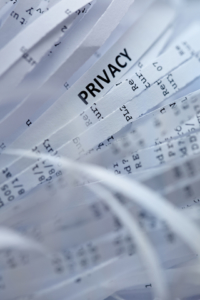How the Internet of Things is further killing Privacy
Privacy used to mean changing clothes behind a partition. Nowadays, say “privacy” and people are likely to think in terms of cyberspace. Stay connected, and you risk losing your privacy.
 Even if you’re not connected, don’t even own a computer or smartphone, information about you can still be out there on the Internet, such as a listing for your address and phone number or a way for someone to get it with a small fee if you live in owner-occupied property.
Even if you’re not connected, don’t even own a computer or smartphone, information about you can still be out there on the Internet, such as a listing for your address and phone number or a way for someone to get it with a small fee if you live in owner-occupied property.
An article on wired.com points out that the Internet of Things (IoT) is a privacy killer. But it’s also more than that. The evolution of technology forces us to redefine how we perceive our lives, says the article. Even an invention as primitive as the steam engine caused a rethinking among people. But whereas the steam engine was a slap, the IoT is a sledgehammer.
And the Internet of Things is only just beginning. Wired.com notes that the combination of the World Wide Web, big data, social identity, the cloud and more are all poised to erupt into something huge, and it won’t give us time to prepare.
The IoT will infiltrate the tiniest and most remote pockets of the planet, inescapable, impacting all who have a pulse, literally. It’s not like the steam engine in which, soon after its invention, many people were afraid to ride the train because they believed that God did not intend for humans to travel so fast, and thus, these folks easily avoided boarding the train.
We won’t be able to avoid the IoT. It won’t be a station we walk up to and then decide we don’t want to get on. We will be, as wired.com says, living inside the Internet. We’re too addicted to technology not to. Kids can’t imagine living without their smartphones. When their grandparents were kids, the only thing they felt needy for was an umbrella on a rainy day. You don’t miss what you can’t conceive of.
With the IoT slowly dissolving us, like a snake swallowing a giant rat and slowly dissolving it (certainly you’ve seen those unsightly images—you know what I’m talking about), our privacy will be dissolved along with us.
Strangers already can figure out what things we like to shop for without ever communicating to us. Your health habits, eating habits, dating habits…all the data that makes you YOU is continuously being shagged by Big Data. “Privacy” may one day become one of those words, like “oil lamp,” that’s no longer in use because by then, it will be such a far-removed concept.
Imagine living in a house made entirely of see-through structures, so that no matter where you are in it, people on the outside can see what you’re doing. There’s no brick, no aluminum, drywall or wood—just all some transparent material. That’s the Internet of Things.
Ways to shield your privacy:
Use a browser that has an “incognito” mode or privacy plug-in.
Use a VPN to mask your IP address and encrypt your data. Knowledge of where you’ve visited can be used against you by insurance companies and lawyers, to say the least; you just never know what can happen when something out there knows your every online move.
Turn of GPS location for photos. iPhone and other devices saves the location where you took the shots, which is no secret once you post the photos on FB, Twitter, Instagram, etc. Shutting down location based apps will help here too.
Robert Siciliano is an Identity Theft Expert to Hotspot Shield. He is the author of 99 Things You Wish You Knew Before Your Identity Was Stolen See him discussing internet and wireless security on Good Morning America. Disclosures.


























